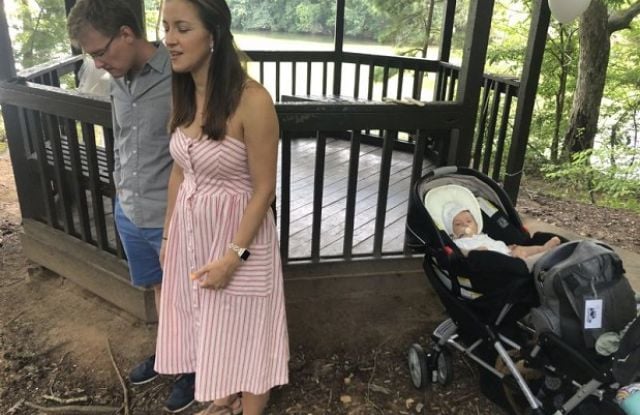Why Community Is Hard To Find & What To Do About It

People in wealthy countries are much more likely to be depressed than people in poor countries.* Many have stopped having children because they’re pessimistic about the future. The average couple in Europe has about 1.5 kids, far below the replacement rate.
Something is broken. If we look at our cultural roots, we can sniff out a few possible reasons why we’re unhappy. For one thing, many of us don’t do well in community. As we’ve become immersed in social media, we live online more and live less in the world of normal human interaction.
Our websites and lives have privacy settings that keep us from sharing. We have become a nation of fence-builders.
As a consequence, people have fewer friends and lack community. The number of people with no friends has tripled in a generation.** It’s an irony – we seek community in virtual space, but we are losing it in real life.
Communities are groups of people held together by common interests and values. Students and retired people tend to be tribal, hanging out on-line or in RV campgrounds. Facebook is a mechanism for building virtual tribes, but can’t deliver on the real thing.
We humans are social creatures who need one another in order to feel at peace and whole. Yet our national history is one of struggle against dysfunctional community. America was born as an act of rebellion and independence. Children of tyranny, we pushed back and fought for freedom.
I think so. A remnant of Christ-followers have always sought to walk that old narrow path that Jesus showed us. People see them walking away from the institutional church and worry about it. What are we boomers to do? We grew up with that church. We ate potluck dinners there. We like the sermons. We have friends there.
community not independencefreedom not legalismkingdom not isolationand discipleship not token faith
What to do
Many are leaving the institutional church in order to journey together in new ways. They aren’t giving up on community, just the model of community that seems inauthentic.
What if that’s you? Here are some alternatives:
1. Your networks. People who look like you are probably in your area; talk to them. For example, the 4,000 people who have been on the World Race often return home looking for authentic church. You can find them through our office or online. Facebook is often a big help to those trying to begin the networking process.
2. A small-group focused church. There’s a difference between most churches and those that really do see home groups as the place where connection happens. Look for those. You can find them online and through your friends.
3. Start one. I’m currently part of a church plant. Believing in the local church, but not finding what we were looking for locally, we started a community group. We love diving into one another’s lives. We meet on Wednesday evening so that people can try it out without having to leave the church they may be committed to. There’s a lot to love: We are comfortable with mess, connect deeply and don’t have to support professional clergy with our tithe.
4. Follow Jesus’ example. He walked away from communities focused around buildings and programs. Go on journeys with those who are searching as you are and see what he shows you on the trail. Find others like you and spend time asking the Lord what he would do.
* * * *
And what if you feel called to an institutional church and want to help it find its way? You can be a change agent right where you are. Here are three actions you can take while staying committed to the people there:
Take a look around. Is your community attractive to young people? If the average age is over 40, consider learning from other younger groups.
Empower young people. Let them make decisions. Give them real budgets and see what God does through them.
Share deeply. True community is forged around connection. Life happens around the kitchen table. Trade in the tired symbols of community for something that is real.
God has more for all of us. The model of church you’ve experienced may disappoint you, but that doesn’t change the fact that you were made for community. Maybe you are ready for a change – that can be a righteous thing. Why not take a few steps and see if that’s what God is ready for too?
* According to this study
**This TIME article



This is great Seth. I think you’ve captured some really good stuff in here, and I think this is how how a lot of people do feel. Glad to be on the journey of forming something better with you.
Amen, Bill!
One of my favorite posts – thanks for championing.
You’re welcome, Nathan.
Excellent post Seth. At the core it’s not incredibly complex, just different than what people have seen modeled.
Thanks, Ethan. Together, we will set a different example.